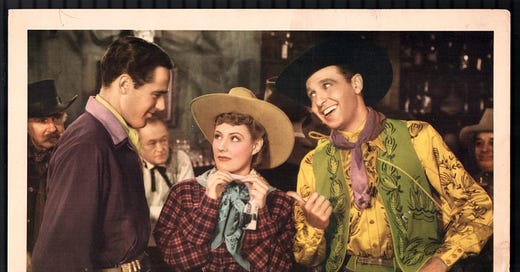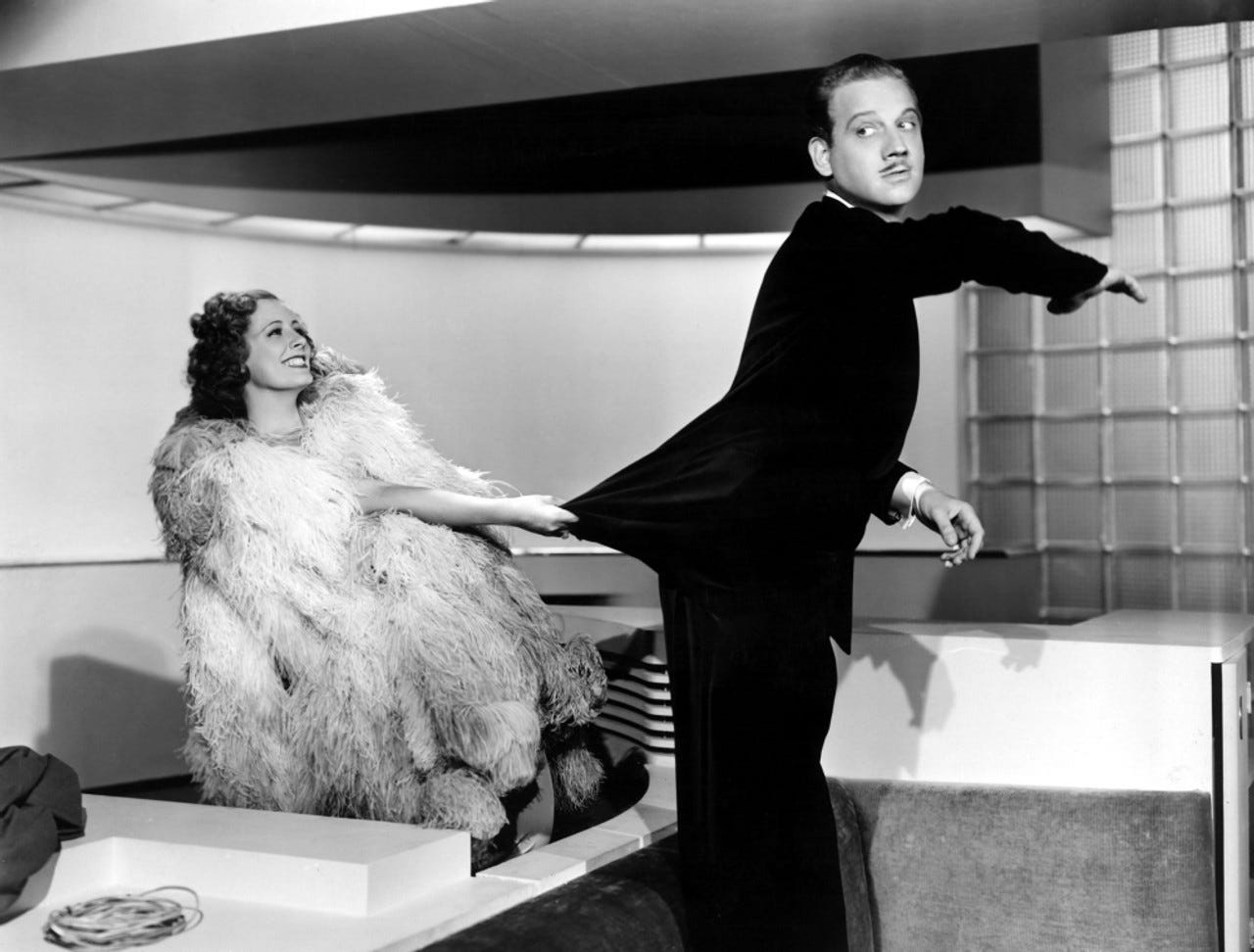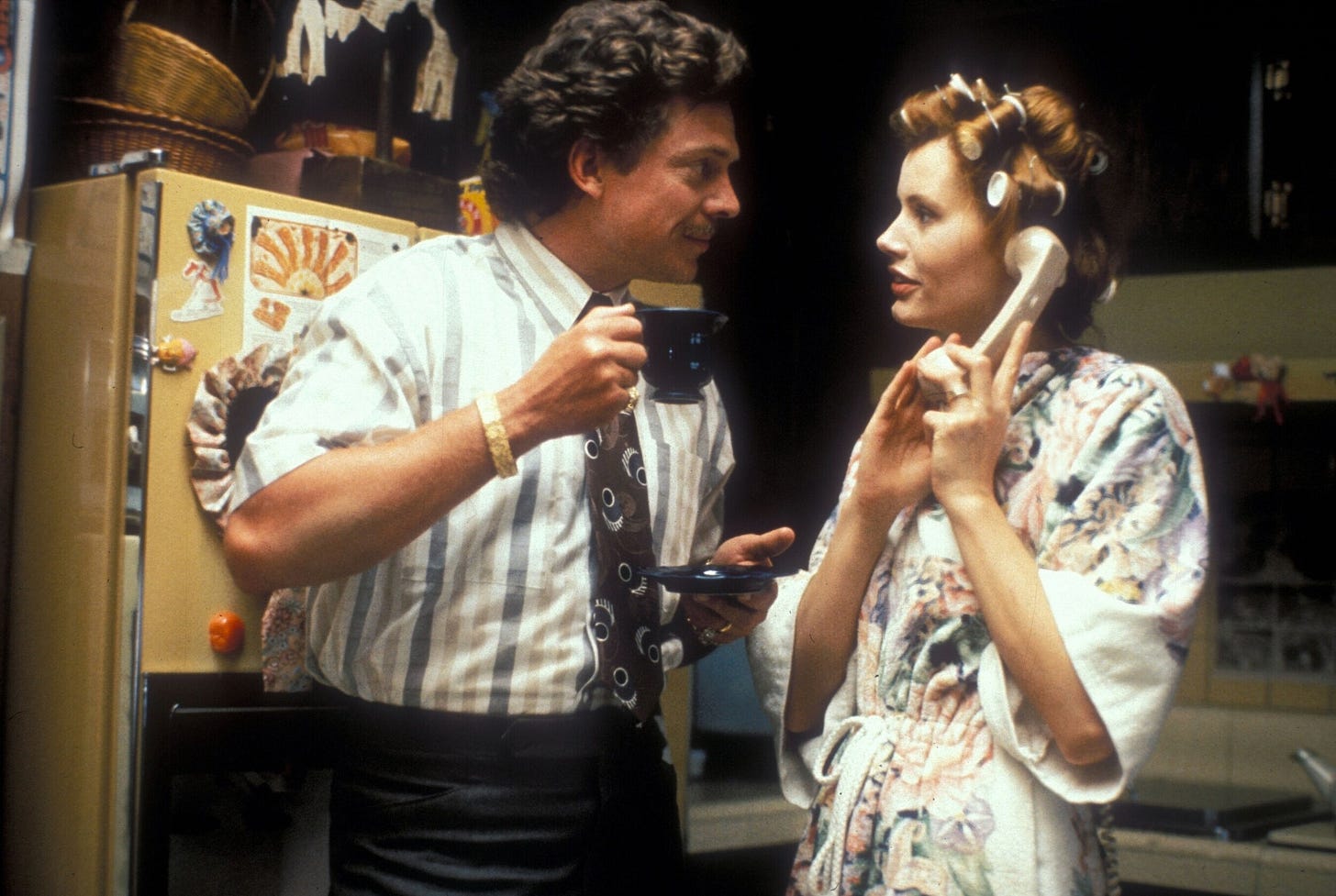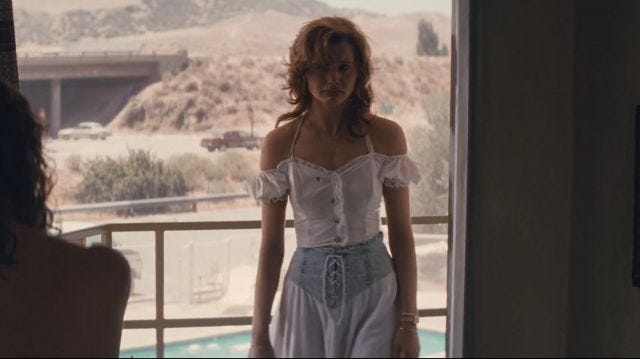Theodora and Thelma (on Screwball)
Films Recommended in this post:
Theodora Goes Wild (1936) [Expires from Criterion at the end of this month]
Thelma and Louise (1991) [Expires from Criterion at the end of this month, available with library card on Hoopla, and with ads on Tubi, Pluto, and the Roku channels]
Also mentioned:
Unfinished Business (1941) [unavailable on streaming or for rental]
Lady in a Jam (1942) [unavailable on streaming or for rental]
The Awful Truth (1937) [Expires from Criterion and Amazon Prime at the end of this month]
Anora is a new film which played the New York Film Festival this weekend (and Cannes, Telluride, San Sebastian, and the Toronto International Film Festival before that) to almost universal joy and approval. The newest film by Sean Baker, about a whirlwind romance between a New York dancer/ sex worker and a Russian heir to a fortune, is being called a modern screwball comedy. Technically, no. It does have Screwball Comedy elements: class differences, mocking the rich, and a soupçon of slapstick (a somersault by co-star Mark Eidelstein is like Cary Grant in Holiday and the best thing in the film). But in its structure and resolution Anora is missing the key elements of the genre.
Baker's previous film, Red Rocket, was original, funny, and brilliantly structured to reveal that the lead character was the world's worst person. His new film takes over 45 minutes for the romantic set-up, staying in the same register for most of that time, then becomes a madcap chase. In screwball comedies, the two characters in the romance resolve their class differences by banter, role-play, and slapstick, then leave the city for nature. The resolution does not usually choose one background or the other, but obliterates the class spectrum by their union. They take the position of the artist: outside of class hierarchies. They also usually play with and opt out of gender expectations.
Expiring on Criterion tomorrow night is a majority of their Columbia Screwball collection, which includes perfect examples of the genre The Lady Eve (1941) and It Happened One Night (1934). [The latter is also on TUBI.] But I recommend you watch a slightly lesser-known screwball comedy: Theodora Goes Wild (1936). This film makes the themes above very explicit by making the two lead characters artists. Irene Dunne is a sheltered Vermont girl secretly writing scandalous novels under a pseudonym. Melvyn Douglas is an urban illustrator from a wealthy family trapped in a loveless marriage due to pressure from his politician father. Douglas goes undercover as a gardening drifter to expose Dunne. After she is freed of her small-town chains, she goes to New York and fantastically, kookily, and fanatically frees him from his silver spoon gag, all while wearing feathers.
Dunne is one of the best comic actresses who has ever lived. Shockingly, Theodora was her first major comedy role, after many years in melodramas, period pieces, and musicals. She went on to star in flawless and funny The Awful Truth (1937), also expiring from Criterion tomorrow, and two harder to see masterpieces of the screwball comedy genre by Gregory La Cava, Unfinished Business (1941) and Lady in a Jam (1942).
********************************
I also recommend a film you've probably seen but may be worth another look: Thelma and Louise (1991). I recently saw this for the first time in decades. I was surprised by how strong it was, even classical. And while Susan Sarandon is excellent, as always, it was a delight to see how screwball Geena Davis was as Thelma. Christopher McDonald, as Thelma's husband Darryl, leaned even more into the classic screwball role of the jilted lover, at one point improvising by standing in a pizza box. Thelma and Louise is an example of having screwball elements, not updating the genre, of course. But if Davis is the Runaway Bride, does that make Sarandon the plain-speaking working-class hero who frees her friend from her shackles on their cross-country road trip? Is Sarandon the Clark Gable to Geena Davis as Claudette Colbert? If so, I would like to think of Brad Pitt as the stalwart supporting character actor who steals the film. In other words, he's the Charles (Butterworth or Ruggles).








